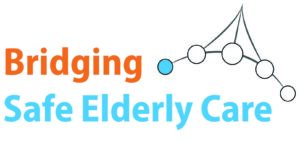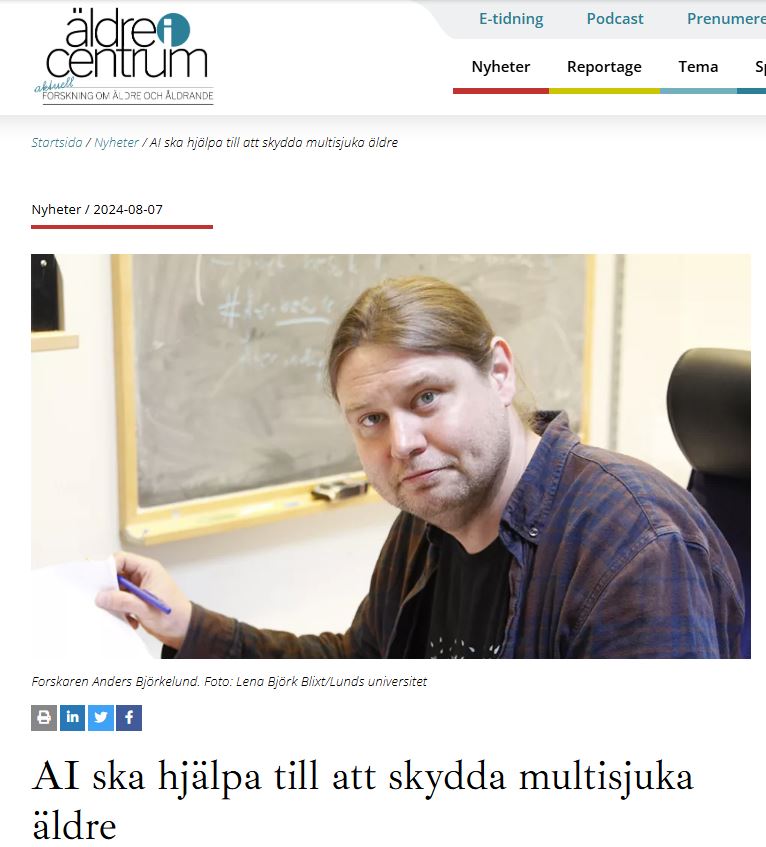Read the article below or in Swedish: ‘äldre i centrum’ hjemmesiden.
In an international project involving researchers from Lund University, among others, artificial intelligence is being explored as a tool to help municipalities improve the quality of healthcare for elderly patients with multiple chronic conditions. The project also aims to identify shortcomings in communication between different healthcare providers at the municipal and regional levels.
Out of a total of 300,000 emergency visits made in Skåne between 2017 and 2018, approximately one-tenth were related to individuals over 75 years old. Among these, 10,000 patients had multiple chronic conditions, also known as multimorbidity.
Now, an international project with researchers from Sweden and Denmark is investigating how artificial intelligence can help predict which elderly patients are at risk of readmission. Currently, they are analysing data from all adult emergency visits in Skåne during 2017 and 2018. This is where artificial intelligence plays a crucial role.
One of the participating researchers is Anders Björkelund from Lund University, an expert in computational science and data analysis using machine learning – the foundation of artificial intelligence.
“With the help of machine learning, we can structure and identify patterns in these large datasets much more efficiently than through traditional methods,” says Anders Björkelund in a press release.
The data being examined includes patients’ diagnostic history, prescribed medications, blood test results from emergency visits, and details of medical procedures. The project’s focus is on enabling artificial intelligence to identify the key factors that increase the risk of a multimorbid elderly patient requiring further medical care.
In addition to this, a parallel aspect of the project is investigating ways to bridge communication gaps between hospital and primary care services, particularly when a patient is transferred between these healthcare providers.
“In Region Skåne, hospital and primary care services use different medical record systems and therefore cannot access each other’s documentation. This is a major issue,”* says Karol Biegus, senior physician at Helsingborg Hospital and PhD student at Lund University.
To address this problem, he is exploring the development of care plans that all healthcare providers can access using artificial intelligence. These plans would outline the patient’s future medical treatment and care needs.
“It is about ensuring that the patient receives the right follow-up care, preventing unnecessary hospital readmissions,” says Karol Biegus.
Facts
The Bridging Safe Elderly Care project is a three-year research initiative funded with €1.5 million from the EU’s Interreg programme. The project involves Region Skåne, Lund University, Region Zealand, and the technology company IQVIA.

